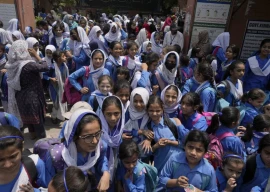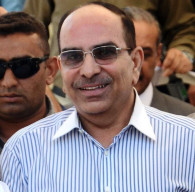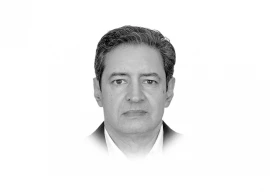
Experts at ThinkFest 2025 explored the profound and often contentious influence of artificial intelligence (AI) on information ecosystems, governance, and digital rights during a session titled "AI, Fake News, and the Fight for Digital Rights."
The panel, featuring Bruno Maçães, former Portuguese minister; Nighat Dad, founder of the Digital Rights Foundation; and Sadaf Khan of Media Matters, focused on shared concerns around disinformation, ethical AI, and the geopolitical forces shaping AI policies, particularly in the Global South.
Bruno Maçães characterised the internet as the emerging global capital and warned of AI's immense power, comparing its potential influence to nuclear weapons. He cautioned against over-reliance on proprietary AI models like ChatGPT, which he argued could undermine intellectual independence by centralising control in the hands of developers.
Nighat Dad highlighted AI's misuse in Pakistan's political landscape, citing disinformation campaigns and deepfakes that disproportionately target women journalists and politicians. She called for AI policies tailored to local contexts, warning against the wholesale adoption of frameworks from the Global North.
Sadaf Khan addressed the broader decline of journalism, linking it to sensationalism and monetisation strategies that exploit women in digital spaces. She noted that these trends have worsened regressive attitudes toward gender in media and online platforms.
The session concluded with a collective call for responsible and ethical AI governance. Panelists emphasised the risks of unregulated AI, including its role in escalating geopolitical tensions and undermining digital rights. They urged the development of inclusive, locally relevant policies to address systemic power imbalances and prioritise human rights, particularly in the Global South.
In another session titled "Building the Green Workforce: Skills for a Sustainable World/Pakistan", an expert panel discussed the skills and strategies necessary to create a sustainable future. The panel included Linda Poppe of Survival International, Uzma Yousaf from Cambridge International, Khadija Amer of the Punjab Group, Ahmed Haleem Khan from the Punjab Skills Development Authority, and Abrar Chaudhry of Oxford University.
The session opened with Abrar Chaudhry highlighting a significant gap in awareness about green skills, stating that only one in eight individuals globally understands the concept. He stressed the urgency of bridging this knowledge gap to address sustainability challenges.
Khadija Amer emphasised the pivotal role of universities in equipping youth with green skills, particularly through the integration of AI and computer science. She pointed to her organisation's use of nanocarbon technology for water purification as an example of innovative approaches to sustainability.
Uzma Yousaf, country head of Cambridge International, underscored the importance of early education in fostering environmental awareness. She explained how her organisation introduces climate change and sustainability topics to children as young as three years old, instilling foundational knowledge that grows with them. She also highlighted teamwork as essential for addressing complex environmental challenges.
Ahmed Haleem Khan, CEO of the Punjab Skills Development Authority, detailed the government's role in promoting green skills through sustainability-focused initiatives.





1736727549-0/booktok-(1)1736727549-0-165x106.webp)



1732012115-0/Untitled-design-(14)1732012115-0-270x192.webp)














COMMENTS
Comments are moderated and generally will be posted if they are on-topic and not abusive.
For more information, please see our Comments FAQ